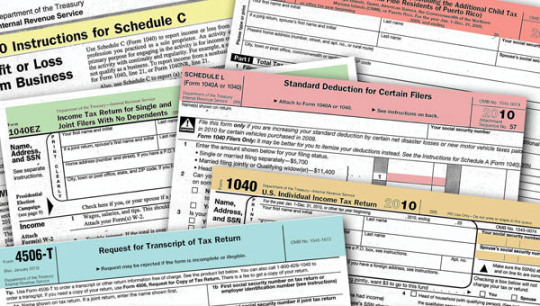Text
Hidden Costs While Filing US Expat Taxes
Hidden Costs While Filing US Expat Taxes

In contrast to most other countries, the US taxes based on citizenship, which means that all Americans, including those living abroad, are required to file US taxes, reporting their worldwide income.
To avoid double taxation, when they file, expats can claim one or more provisions that the IRS has made available for this purpose, such as the Foreign Earned Income Exclusion, or the Foreign Tax Credit. Which provision it’s best to claim depends on each expat’s individual circumstances, however expats still have to file to claim them.
Expats may also have to report their foreign bank accounts, investments and business interests.
In principle, there are no costs involved in filing US taxes from abroad. IRS forms can be downloaded and e-filed from anywhere in the world.
The difficulties though are knowing exactly which forms should be filed in what circumstances, and then completing them correctly and accurately. And that’s before ensuring that you have filed in the most strategically beneficial way possible!
It is for these reasons that most expats seek assistance from a US expat tax specialist firm, to ensure that they file completely, correctly, and in their best interests.
When deciding which expat tax services firm to use though, it’s important that expats ensure that the firm has a transparent fee structure.
Expats are completely entitled (and correct) to ask what their tax preparer’s final fees will be before deciding to work with them. They should ensure that the quote provided will be the total and final price, and that there are no hidden, additional costs.
Another potential hidden cost during the filing process can be IRS interest accrued if any US taxes owed are paid late. As mentioned, most expats don’t end up paying US taxes after claiming one or more IRS provisions to prevent double taxation however expats should ensure that if they do owe any US tax, including social security taxes for self-employed expats (and those working overseas for an American firm), they pay it by April 15th to avoid paying interest. Expats who owe US tax may also have to pay estimated tax payments for the year ahead throughout the year.
The greatest hidden cost expats may face though is financial penalties for not filing, or for not reporting their finances completely and accurately when they file.
These costs can add up, especially as if expats don’t file and claim any exclusions or US tax credits, the IRS assumes that they still owe US tax. If the IRS calculates that they owe more than $50,000 of US tax, they can ask the State Department to block passport renewals.
Furthermore, expats who don’t report their foreign financial (e.g. bank and investment) accounts by filing an FBAR (Foreign Bank Account Report) are fined $10,000 per year.
The way for expats to avoid these penalties is to seek help from an expat tax specialist firm to ensure that they file correctly, fully, and in a timely manner.
Expats who are behind with their US tax filing can catch up without facing penalties under an IRS amnesty program called the Streamlined Procedure, so long as they do so before the IRS contacts them.
0 notes